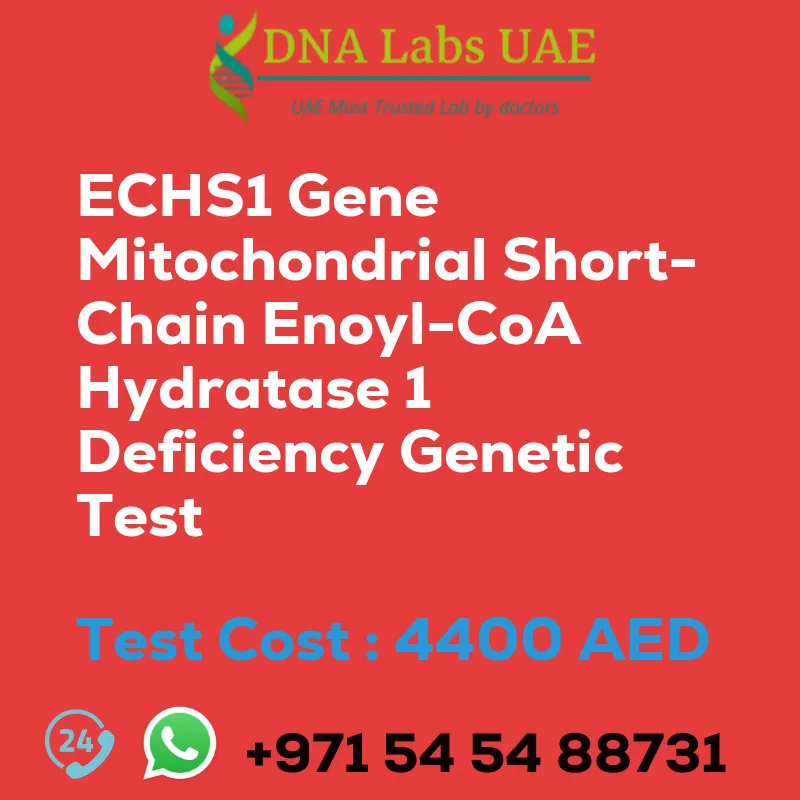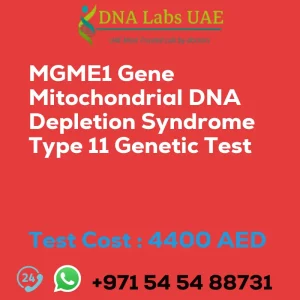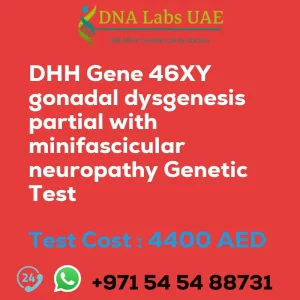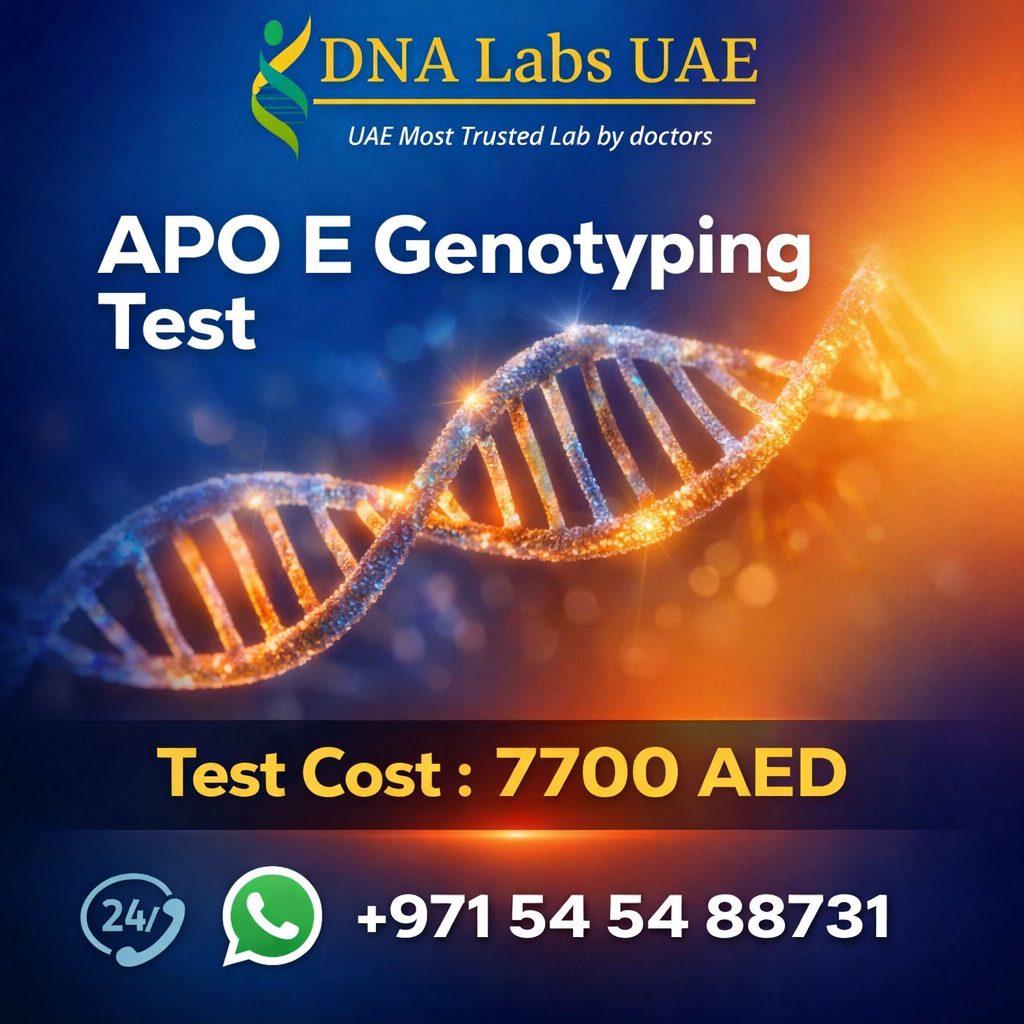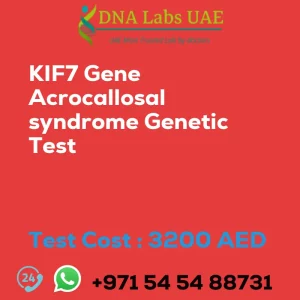ECHS1 Gene Mitochondrial short-chain enoyl-CoA hydratase 1 deficiency Genetic Test
Test Name: ECHS1 Gene Mitochondrial short-chain enoyl-CoA hydratase 1 deficiency Genetic Test
Components: Price – 4400.0 AED
Sample Condition: Blood or Extracted DNA or One drop Blood on FTA Card
Report Delivery: 3 to 4 Weeks
Method: NGS Technology
Test Type: Neurological Disorders
Doctor: Neurologist
Test Department: Genetics
Pre Test Information: Clinical History of Patient who is going for ECHS1 Gene Mitochondrial short-chain enoyl-CoA hydratase 1 deficiency NGS Genetic DNA Test. A Genetic Counselling session to draw a pedigree chart of family members affected with ECHS1 Gene Mitochondrial short-chain enoyl-CoA hydratase 1 deficiency.
Test Details
The ECHS1 gene encodes for the mitochondrial enzyme called short-chain enoyl-CoA hydratase 1. Deficiency in this enzyme is associated with a rare genetic disorder known as ECHS1 deficiency. This disorder is characterized by a range of symptoms that typically appear in infancy or early childhood. These symptoms can include developmental delay, muscle weakness, seizures, movement disorders, vision problems, and hearing loss. In some cases, individuals with ECHS1 deficiency may also have episodes of metabolic crisis, which can be life-threatening.
NGS (Next-Generation Sequencing) genetic testing is a type of genetic test that uses advanced sequencing technologies to analyze multiple genes simultaneously. In the context of ECHS1 deficiency, NGS testing can be used to identify mutations or variations in the ECHS1 gene that may be responsible for the disorder. By identifying these genetic changes, NGS testing can help in confirming a diagnosis of ECHS1 deficiency and in providing information about the specific genetic variant involved. This information can be important for understanding the inheritance pattern of the disorder and for providing appropriate genetic counseling to affected individuals and their families.
NGS genetic testing for ECHS1 deficiency may be recommended for individuals with suspected symptoms of the disorder or for individuals with a family history of the condition. It is typically performed on a blood or saliva sample, and the results are interpreted by genetic specialists or genetic counselors.
| Test Name | ECHS1 Gene Mitochondrial short-chain enoyl-CoA hydratase 1 deficiency Genetic Test |
|---|---|
| Components | |
| Price | 4400.0 AED |
| Sample Condition | Blood or Extracted DNA or One drop Blood on FTA Card o |
| Report Delivery | 3 to 4 Weeks |
| Method | NGS Technology |
| Test type | Neurological Disorders |
| Doctor | Neurologist |
| Test Department: | Genetics |
| Pre Test Information | Clinical History of Patient who is going for ECHS1 Gene Mitochondrial short-chain enoyl-CoA hydratase 1 deficiency NGS Genetic DNA Test A Genetic Counselling session to draw a pedigree chart of family members affected with ECHS1 Gene Mitochondrial short-chain enoyl-CoA hydratase 1 deficiency |
| Test Details |
The ECHS1 gene encodes for the mitochondrial enzyme called short-chain enoyl-CoA hydratase 1. Deficiency in this enzyme is associated with a rare genetic disorder known as ECHS1 deficiency. This disorder is characterized by a range of symptoms that typically appear in infancy or early childhood. These symptoms can include developmental delay, muscle weakness, seizures, movement disorders, vision problems, and hearing loss. In some cases, individuals with ECHS1 deficiency may also have episodes of metabolic crisis, which can be life-threatening. NGS (Next-Generation Sequencing) genetic testing is a type of genetic test that uses advanced sequencing technologies to analyze multiple genes simultaneously. In the context of ECHS1 deficiency, NGS testing can be used to identify mutations or variations in the ECHS1 gene that may be responsible for the disorder. By identifying these genetic changes, NGS testing can help in confirming a diagnosis of ECHS1 deficiency and in providing information about the specific genetic variant involved. This information can be important for understanding the inheritance pattern of the disorder and for providing appropriate genetic counseling to affected individuals and their families. NGS genetic testing for ECHS1 deficiency may be recommended for individuals with suspected symptoms of the disorder or for individuals with a family history of the condition. It is typically performed on a blood or saliva sample, and the results are interpreted by genetic specialists or genetic counselors. |

